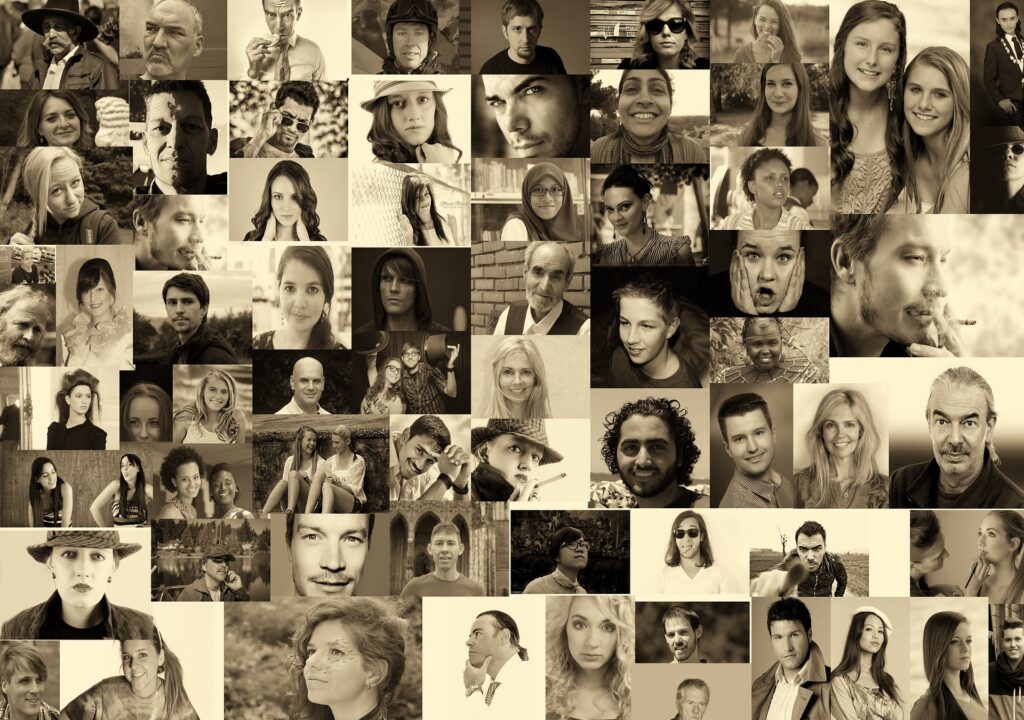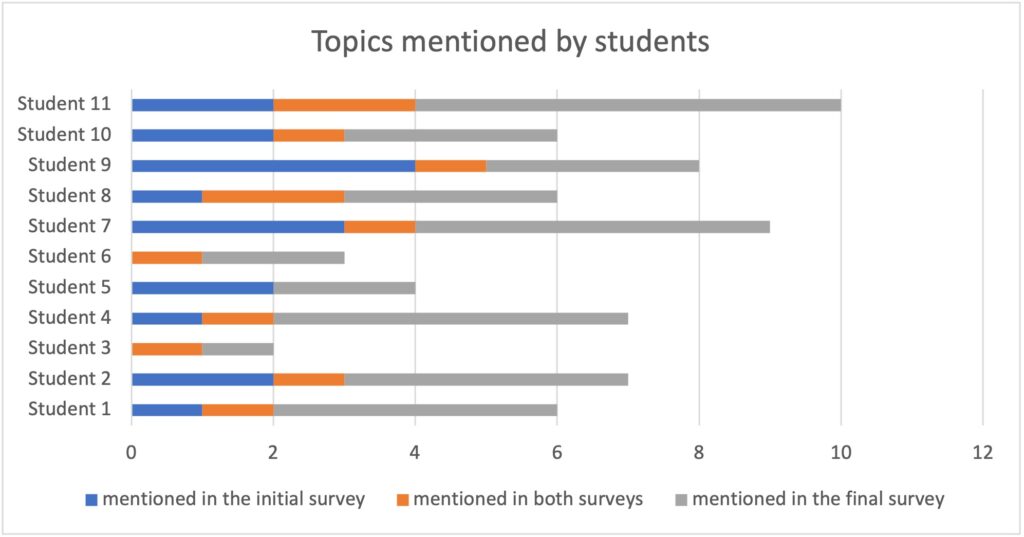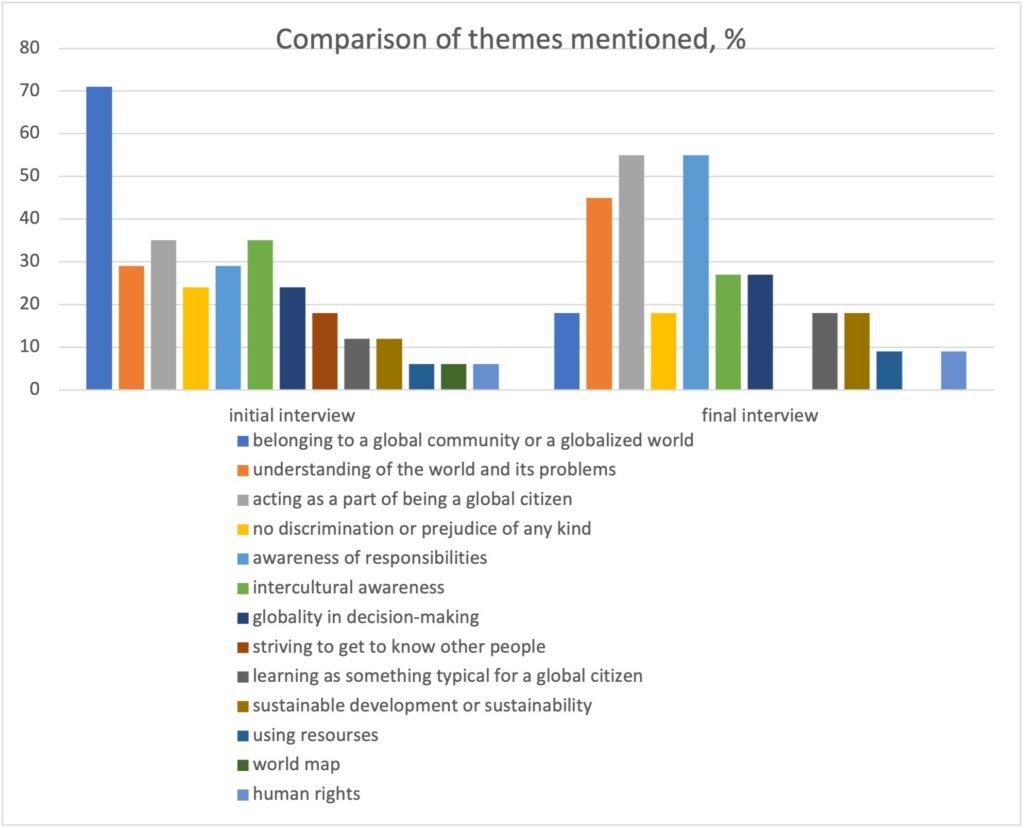
Global citizenship is at the core of the distant course piloted at the LAB University of Applied Sciences in 2022. The course aims at creating an inclusive learning environment to study, debate, and implement knowledge in multicultural teams. The course creators conducted a survey as one of the final tasks to trace the development of the students` vision of global citizenship. This article discusses the survey results and compares them with those from the initial stage of the course.
Author: Mariia Baliasina
The LAB University of Applied Sciences piloted the Diversity Management and Global Citizenship course for the Sustainable Solutions in Engineering international degree programme last autumn. The developed course is a part of an Erasmus+-funded international GLOBDIVES project (Global Citizenship and Diversity Management Skills in Higher Education) carried out by participants from five European countries. The GLOBDIVES project strengthens international cooperation and attributes to teaching global citizenship and diversity management through research and collaboration in content development for the universities of applied sciences. (LAB University of Applied Sciences 2023.)
At the beginning of the pilot course, the LAB team conducted a short survey to understand the level of students’ awareness of global citizenship. The survey results proved that global citizenship is not an essential part of students’ competencies (Baliasina 2022). Following the progress of the course, the team introduced the second survey with the questions: How has your understanding of global citizenship changed during the course? What is your understanding of global citizenship now? At the end of the course, how would you describe a global citizen? The project team analysed the answers to understand the impact of the course content on the students’ knowledge and competencies.
“As the course progressed, I started to have a deeper and broader understanding of global citizenship”
The final survey got 11 responses. While there is a difference in responses in the two surveys, the article will use the percentage distribution when comparing the data from both surveys.
Answering the first question of the survey, most of the respondents indicated that their understanding has changed. In view of the same answers from 11 students, these words were selected three times in the first survey and 14 times in the second survey. This fact, supported by the change in understanding about global citizenship, makes the course creators think that the students benefited from the course content and tasks.
“I got to also sort of ponder on things that I have not thought about before”
The total number of themes the students associate with global citizenship has grown by eight. Table 1 illustrates the growth in the total number of topics and in the number of the topics by every student. Only one person mentioned fewer issues in the final survey. The rise in the number of topics related to global citizenship proves that the range of knowledge on the subject has increased.

Table 1. The topics mentioned by the students
There is also a difference in the number of references to every topic in the surveys (see Table 2). For example, awareness of responsibilities has broadened while belonging to the global community or a globalized world has shrunk and lost two-thirds of references. Some of the topics have changed their central idea. Several points of the changes are worth further explanation as they indicate the influence of the course.
“The global citizen is the person that fully understands that even a small gesture or behaviour can have an impact globally”
The awareness of responsibilities has grown in references from 29 % to 55 %. The creators of the course believe that the growth is due to the course material that discloses the responsibilities of a global citizen. They indicate the active position of a global citizen and may relate to taking other actors into account.
The abundance of course tasks directed to planning actions, discussing, and analysing the grounds for diverse and inclusive businesses resulted in the growth of references to acting as a part of being a global citizenby 20 %. The rise shows that the students have learned from the course and developed their visions.
Table 2 shows that the number of responses against any form of discrimination or prejudice has fallen by 5%. However, this does not mean that the issue is less important for students, because they introduced a new topic, awareness of inequality, which received 45 % of the answers.

Table 2. Comparison of the themes mentioned, %
The understanding about the world and its problems have grown and expanded with the awareness of the impact of the actions and decisions on the world – “a global citizen is someone who can think outside the box and realise every choice they make can have a huge difference and affect people and the environment both inside and outside of their box.”
The emergence of the following new topics indicates the impact of the course. Biases with 36 % references reflect the course chapter on unconscious bias in thinking that precedes the discussion on diversity, equity, inclusion and belonging. Awareness of (in)equalities, immigration, poverty, and consumer behaviour topics disclose the fact that the global scale is not of the primary interest of the respondents. The topics relate to more personal issues or are connected with building interpersonal relations.
Sustainability and human rights related to being a global citizen have not risen in the number of references. The fact is to be further considered by the course developers as both topics are essential for global citizenship and the problems our world faces.
“We are all more or less global citizens”
The article got its title from a student’s answer, who explained the changed perception of being a global citizen after participation in the course. The analyses of the responses to the final survey and its comparison to the results of the initial one conveyed that the students have broadened their understanding about global citizenship, became more aware of the existing inequalities and the responsibilities of every global citizen to stand against them, and have started paying attention to their actions, avoiding unconscious biases towards others. The students’ views changed to be more proactive.
The results inspire the project team to further develop the course content to support global citizenship. Some topics need more elaboration, as they haven’t shown the desired impact. The Diversity Management and Global Citizenship course is scheduled for the year 2023, and the GLOBDIVES team hopes that the course will guide every participant to a deeper understanding of global citizenship.
In the words of the one responder:
We have to be aware that we are not only having human rights, but we are having human obligations, and we should follow them and be globally minded individuals.
References
Baliasina, M. 2022. Global citizenship – to teach or not to teach? LAB RDI Journal 30.11.2022. Cited 29 Jan 2023. Available at https://www.labopen.fi/en/lab-rdi-journal/global-citizenship-to-teach-or-not-to-teach/
LAB. 2023. GLOBDIVES. Global citizenship diversity management skills higher education. Cited 30 Jan 2023. Available at https://lab.fi/fi/projekti/global-citizenship-diversity-management-skills-higher-education
Author
Mariia Baliasina, M.Ed., teacher, works as a Research & Development & Innovation (RDI) Specialist in the Faculty of Health Care and Social Services at the LAB University of Applied Sciences.
Illustration: https://pixabay.com/fi/photos/kuvayhdistelm%C3%A4-kasvot-556806/ (Gerd Altman, Pixabay-Lisence)
Published 22.2.2023
Reference to this article
Baliasina, M. 2023. “We are all more or less global citizens.” LAB Pro. Cited and the date of citation. Available at https://www.labopen.fi/lab-pro/we-are-all-more-or-less-global-citizens/






